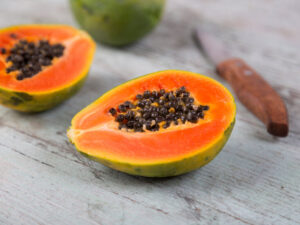What Foods Are Good & Bad For Piles?
Piles are one of the most common diseases these days, and we always say that food is the medicine that you can have. What food are good & bad for piles?
So, if you also want to know, What food causes piles? Then welcome because you are on the right spot because in this article we will discuss it.
This article, not only we will tell you What food causes piles? But we will also tell you what to eat during piles, so you get a better idea of it. Well, now, if that sounds interesting to you, then let us begin.
Table of Contents
What Foods Are Good & Bad For Piles?
What Food Causes Piles?
As you’ve probably figured by now, consuming an excessive amount of food that is poor in fiber may result in constipation and, in some cases, hemorrhoids in the colon.
Here are some of the foods that are thought to be harmful to hemorrhoids and that it may be advisable to avoid if you suffer from them:
- White bread and white rice are the only options.
- ‘Milk, cheese, and dairy products
- Meat
- Food that has been processed, such as frozen ready-meals and fast food
After everything is said and done, the idea is to have a well-balanced diet that gives your body all of the nutrients it requires while also including enough fiber to aid in producing soft stool that is easier to pass.
According to the British Nutrition Foundation, increasing your fiber intake gradually while also drinking enough water (about 6-8 glasses per day) and engaging in regular weekly activity are all recommendations made by the organization.
Good Food For Piles?
There are two forms of fiber that may be found in many types of food and that, among other things, help digestion as well as provide several other health benefits:
Using soluble fiber, which absorbs water as it goes through your system, you can keep your stool soft and reduce the likelihood of constipation. This kind of fiber aids in maintaining regular bowel motions and the flow of food through the digestive tract.
According to the American Dietetic Association, we should consume approximately 30 grams of fiber per day, so we’ve compiled a list of foods you can incorporate into your diet that contains both soluble and insoluble fiber, as well as some culprit foods that are frequently associated with constipation.
1. Fruit
Fruits such as apples, bananas, oranges, and strawberries are simple to include in your grocery shopping list and are a good source of fiber as well.
The majority of the thread may be found in the skins of various fruits, so be sure to eat the apple peel as well as the fruit itself. If you can’t get your hands on some luscious, fresh fruit, tinned or dried fruit might be an excellent substitute on rare occasions.

2. Vegetables
Brussels sprouts and other green vegetables such as kale, broccoli, and spinach may cause some controversy at the Christmas dinner table.
Still, they are a terrific source of fiber that should not be overlooked. In addition, vegetables with high water content, such as peppers, celery, cucumbers, zucchini, cabbage, and lettuce, aid in the softening of the stool even further.

3. Whole Grains
Increasing your consumption of whole grains is another excellent approach to get extra fiber into your daily diet. Replace white bread with multi-grain or dark rye pieces to make a healthier switch.
The following grains and kinds of pasta are suitable alternatives to white rice and pasta: barley, brown and wild rice, bulgur wheat, quinoa, and wholemeal pasta.
